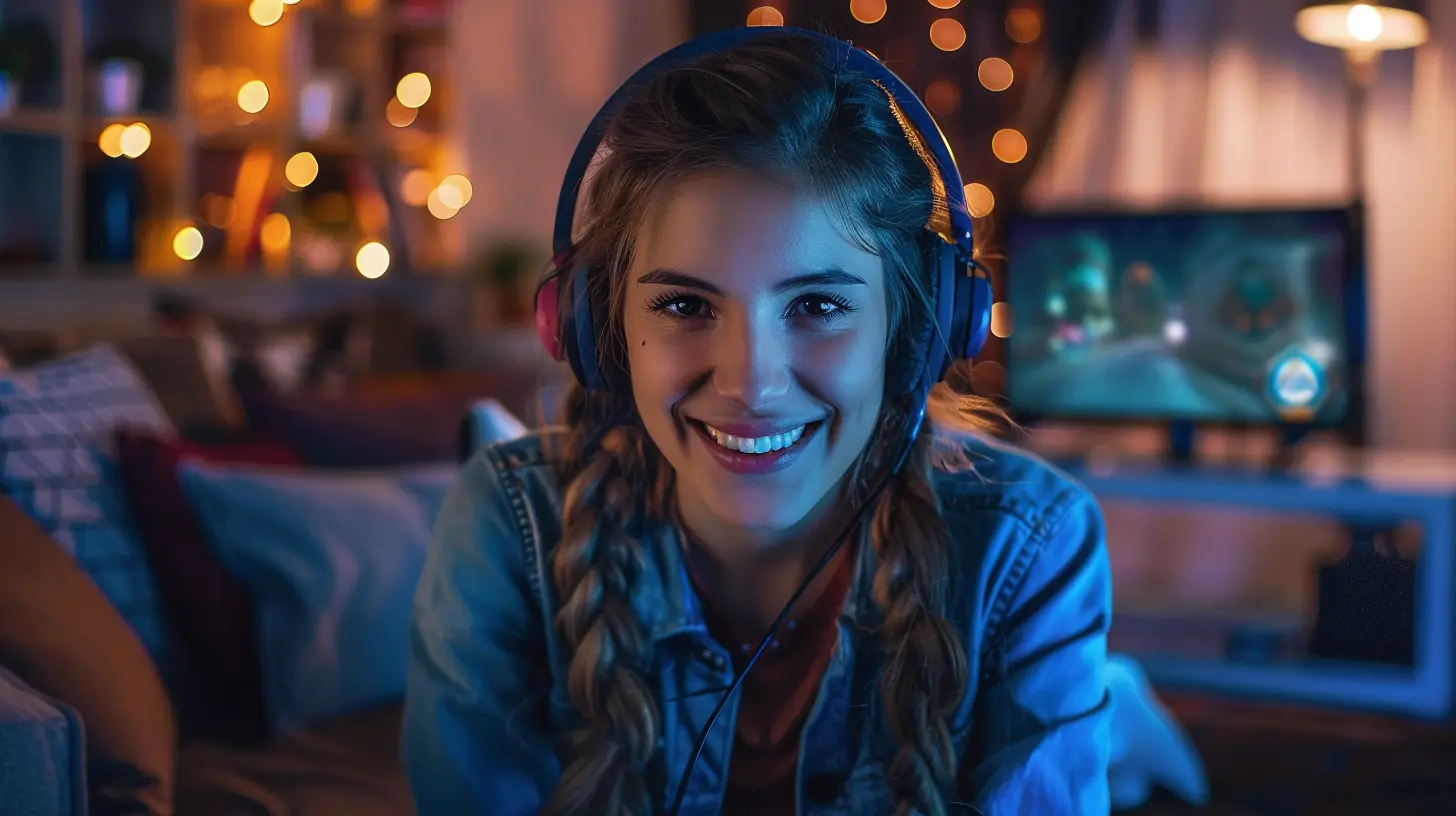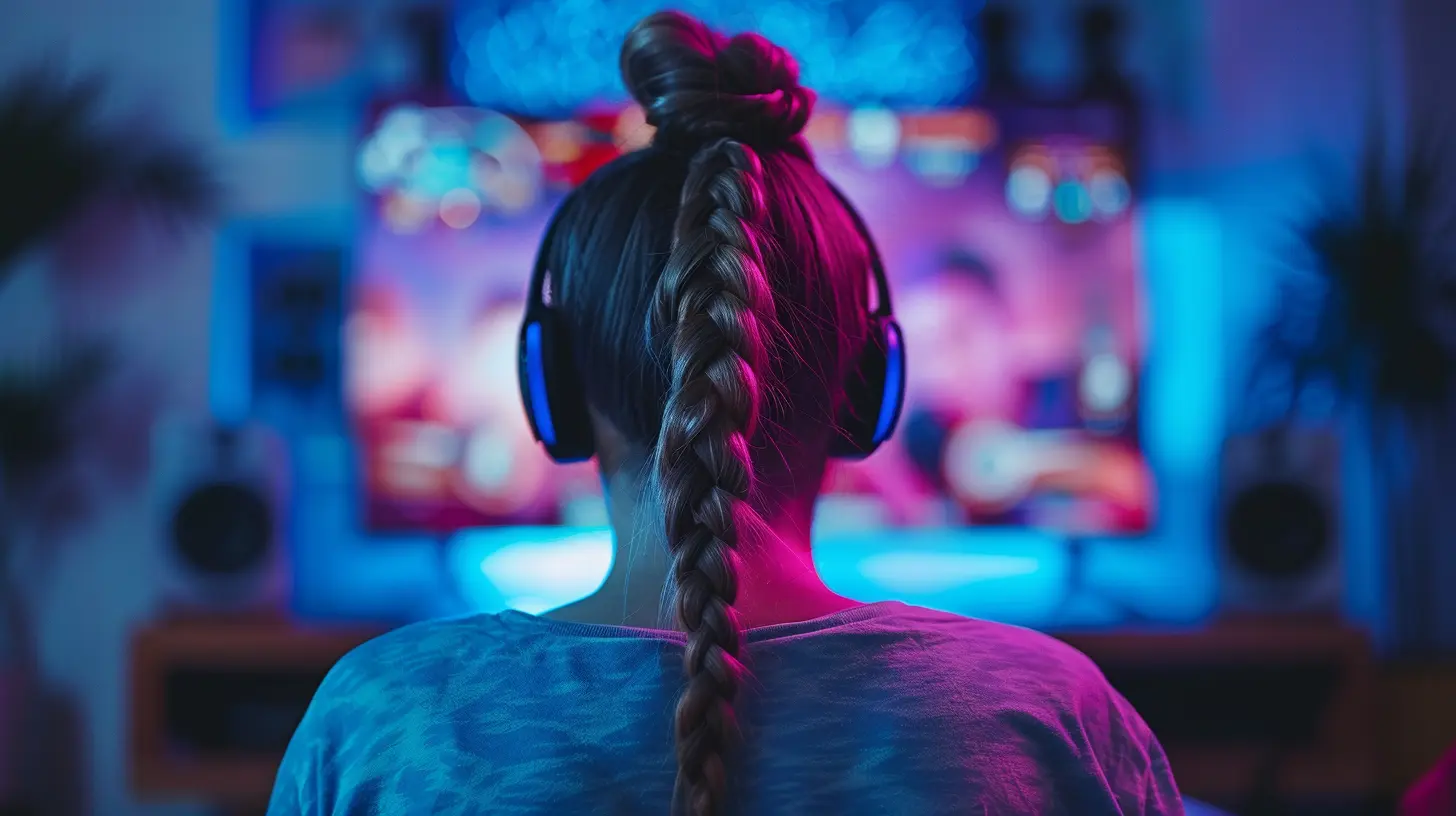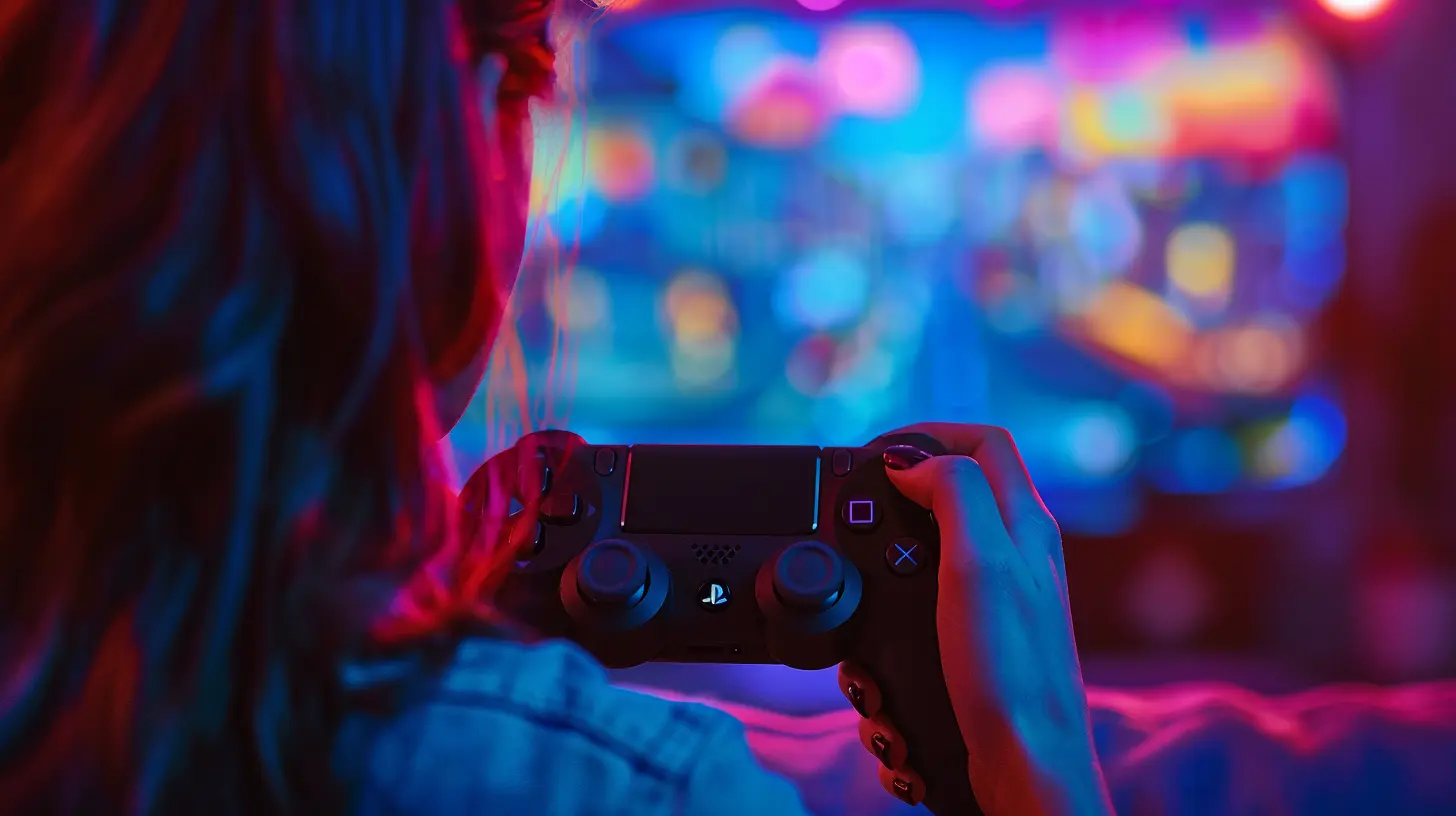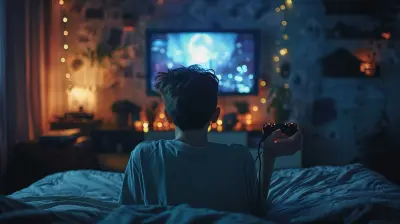How Video Games Help Manage Anxiety and Stress
11 November 2025
Let’s be real for a second — life can be a lot. Between deadlines, responsibilities, social drama, and everything in between, our brains often feel like they’re juggling flaming swords. That’s where video games come in — not just as a fun escape, but as a legit way to help us manage anxiety and stress.
Sounds wild? Not really. Science and personal stories alike back this up. Video games aren’t just weekend entertainment; they're becoming a surprisingly powerful tool in maintaining mental wellness. So, grab your controller, because we’re going to deep dive into how video games help manage anxiety and stress.
Table of Contents
1. A Quick Look at Anxiety and Stress2. Why Video Games Work as Stress Relievers
3. Types of Games That Help the Most
4. How Video Games Distract the Mind
5. Social Gaming and Emotional Support
6. The Science Behind the Screens
7. Setting Healthy Boundaries with Gaming
8. Final Thoughts: It’s More Than Just a Game

A Quick Look at Anxiety and Stress
Before we start praising video games like they’re digital superheroes (okay, they kind of are), let’s clarify what we mean by anxiety and stress.- Stress is usually a response to external pressures — think school, work, or a jam-packed to-do list.
- Anxiety, on the other hand, sticks around even when the stressor is gone. It’s that knot in your stomach, that racing heartbeat, the feeling that something’s just… off.
Everybody experiences stress and anxiety at some point. But when it starts to mess with your daily life, you need coping strategies. And surprise — video games are one of them.
Why Video Games Work as Stress Relievers
Ever notice how time flies when you’re gaming? That’s no accident. Video games are immersive experiences that pull your mind away from real-world stressors.1. Total Mental Engagement
Video games require focus. Whether you’re solving puzzles, dodging enemies, or building empires, your brain is too busy to obsess over that awkward thing you said five years ago.2. Instant Feedback = Instant Satisfaction
When you complete a level or unlock an achievement, you get a rush of dopamine — the “feel-good” brain chemical. It’s like a tiny reward that says, “Hey, you did good.” That boost in mood? It adds up.3. Sense of Control
Life can feel chaotic. But in a game? You call the shots. Want to build a farm, conquer a galaxy, or cook up virtual meals? Go for it. That sense of control, even if it’s digital, is super soothing.
Types of Games That Help the Most
Alright, not all games are created equal when it comes to stress relief. While some can get a little intense (looking at you, competitive shooters), others are practically tailor-made to calm your nerves.🧘♀️ Cozy Games
Think Stardew Valley, Animal Crossing, and Spiritfarer. These games are chill, peaceful, and visually relaxing. You farm. You fish. You decorate. Zero pressure. High relaxation.🌍 Open-World Adventures
Games like The Legend of Zelda: Breath of the Wild or Minecraft let you explore at your own pace. You aren’t rushed. You just... exist in a beautiful world. That alone can be therapeutic.🧠 Puzzle and Strategy Games
Tetris, Portal 2, Sudoku apps — these tighten your focus and gently nudge your brain into problem-solving mode, which can push anxious thoughts to the side.🎮 Rhythm and Music Games
Games like Beat Saber or Just Dance let you get moving, match patterns, and groove out to music — all proven ways to reduce anxiety.How Video Games Distract the Mind
You know that phrase, "out of sight, out of mind"? Video games sort of do that, but mentally. Here’s how:They Narrow Your Focus
When you're trying to survive a zombie horde or complete a timed puzzle, your brain shifts gears. That tunnel vision can be a godsend when your thoughts are spiraling.They Interrupt Negative Thought Loops
Anxiety loves to trap you in an overthinking cycle. But video games can break that loop. You’re not thinking about worst-case scenarios — you’re way too busy saving kingdoms or leveling up.They Offer Predictability
Life is unpredictable. Games? Not so much. They often come with rules, patterns, and clear goals. That predictability can be super comforting when your mind feels chaotic.Social Gaming and Emotional Support
Let’s not sleep on the social side of gaming. Sure, solo gaming is great, but multiplayer and online communities bring something special to the table.Gaming Communities = Safe Spaces
From Discord servers to in-game chatrooms, gamers often find incredibly supportive communities. When you're feeling anxious or down, having a space where people "get it" can make a world of difference.Multiplayer Games Build Connection
Co-op games like Overcooked or Among Us aren’t just fun — they’re bonding experiences. Talking, strategizing, even laughing over total fails can lighten the emotional load.Shared Goals Boost Belonging
Working toward a common objective in team-based games creates a sense of belonging. And that sense of “we’re in this together” helps tame feelings of isolation and anxiety.The Science Behind the Screens
Don’t just take my word for it — research is starting to back this up in a big way.Dopamine and Positive Reinforcement
Games trigger dopamine, the neurotransmitter linked to pleasure and reward. This isn’t just a “yay, I won” moment — it actually helps balance out the chemicals that impact mood and mental well-being.Cognitive Behavioral Theory (CBT) and Gaming
Therapists are now integrating game-based elements into CBT, a common treatment for anxiety. Some video games are even being developed specifically for emotional regulation and stress management.Heart Rate and Breathing
Believe it or not, relaxing video games can actually help lower your heart rate and slow your breathing — both physical markers of reduced stress. It’s like digital meditation with a controller.Setting Healthy Boundaries with Gaming
Okay, time for a truth bomb: video games are awesome, but they’re not a magic cure. Like anything, moderation is key.Don’t Replace Real-Life Coping
Gaming helps, but it’s not a replacement for things like therapy, exercise, or a solid sleep routine.Watch Out for Escapism
It’s easy to disappear into games when life gets tough. Just make sure you’re coming up for air now and then.Set Timers and Take Breaks
It’s tempting to go on a 12-hour binge, but your eyes, back, and brain will thank you for stepping away once in a while.Choose Games That Uplift You
If a game leaves you more frustrated than relaxed (looking at you, Dark Souls), it may not be helping your anxiety. Go for content that soothes, not spikes.Final Thoughts: It’s More Than Just a Game
Here’s the thing — video games don’t have to be "just for fun." They can be safe havens, stress outlets, and low-key therapy sessions rolled into one. Whether you’re gathering herbs in Skyrim, solving mysteries in Life is Strange, or bouncing around in Fall Guys, your brain is soaking up the benefits in the background.So, next time someone gives you a side-eye for firing up your console after a stressful day, just smile and say: “It’s self-care.”
Because, honestly? It is.
all images in this post were generated using AI tools
Category:
Gaming And Mental HealthAuthor:

Whitman Adams
Discussion
rate this article
2 comments
Gwen Barnes
Who knew battling pixelated monsters could be the ultimate stress reliever? Video games transform anxiety into adventure, turning our worries into epic quests! So grab that controller, pop some popcorn, and let’s game our way to zen—no meditation required! 🎮✨
November 22, 2025 at 3:41 PM

Whitman Adams
Absolutely! Video games offer an immersive escape, allowing us to channel stress into engaging experiences that promote relaxation and joy. Happy gaming! 🎮✨
Maxine Torres
Who knew that defeating pixelated monsters could be the ultimate stress buster? Video games are like cozy blankets for our minds—perfect for chasing away anxiety while leveling up our relaxation skills. Let’s hit ‘pause’ on stress and keep those joyful vibes rolling!
November 17, 2025 at 5:28 PM

Whitman Adams
Absolutely! Video games provide a fun escape and a sense of achievement, making them a fantastic tool for managing stress and anxiety. Let's celebrate their positive impact on mental well-being!


